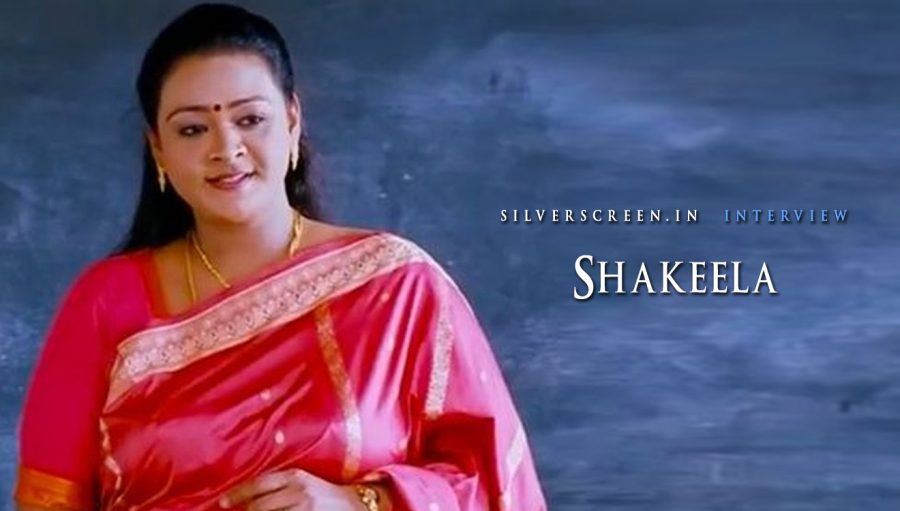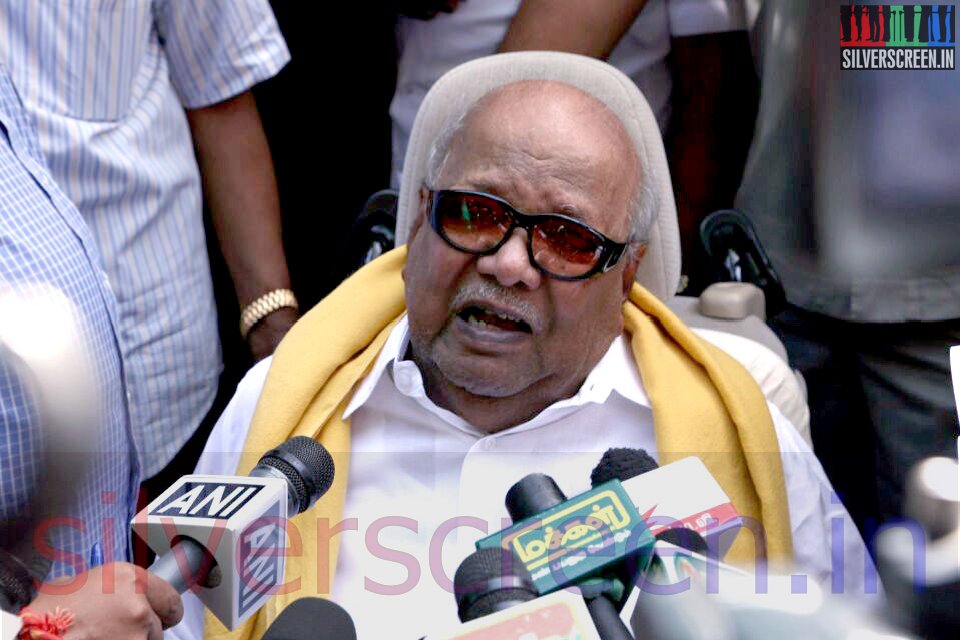Shakeela is a woman wronged – by others’ choices and decisions made by her parents, society, and men. “Oh, the men,” she sighs. “They were so good to me when my star was on the rise. And then, when I really needed them, they all left.”
It is life’s great irony, then, that after two decades of being the object of desire of Indian men, Shakeela’s story will be immortalised onscreen by a man. An adaptation of her story is currently in production with Bollywood star Richa Chadda in the lead role.
Shakeela is glad that her story is finally being told and doesn’t care if a man is in charge of things now. “Man or woman, I am just glad that they are showing my life to others. I am not who they (the audience) think I am. I am a person too.”
She considered directing it herself, as it would finally allow her to take control of her story, and her life.”Fate decided that someone else had to direct it. I am happy with the choice. Indrajith (Lankesh) is a sensitive director. I am confident that he will treat my story with respect.”
A matter of choice
Respect is not something the actor is used to being accorded. She has consistently been sidelined and treated differently – both by the film world and her family. “They (family) never appreciated what I did for them. Even when I visited them, I was always the black sheep. The one who took a different path and was, therefore, untouchable. I was with them, yet I was not with them. The choices I made gave them a good life, but what about mine?” she elaborates.
New age cinema features several bikini sequences (they even pass the censors without much fuss), but Shakeela is still viewed with disdain by society. “Why is society okay with the heroines who do this? And, not with me? I have never worn a bikini onscreen. I have never appeared nude. But I have this image of a bad woman. Why do they have these double standards?” she asks.
The Central Board of Film Certification has consistently certified her films ‘A’. “I agree my movies are all B-grade films. The kind of movies that the censors think are not fit for general viewing. But, how is it that ‘regular’ films with bikini sequences gets passed with a ‘U’ or ‘UA’ certificate? Is this not partiality?”
But, being treated differently is not new to Shakeela. Since an early age, she always felt conflicted about the way she looked and the attention men showered upon her. “Local boys would wait for me on the way to school, and whistle. I never knew what to make of this. This did not happen to my sisters. I think my mother knew that; that’s why she sent me to men,” she says, matter-of-factly.
Growing up
Shakeela had seven siblings and a father who was unwell and could not provide for them. Her mother stepped in to make sure that their needs were met. But even that was too little. At 16, Shakeela failed her Class 10 exams. Her life took a turn. Her mother asked her to “meet men” so that her family could survive. “My mother knew that I was struggling with studies. I had siblings to care for. One day, mummy told me that we did not have any money and asked me to go meet a man. I obeyed. This went on for a few years.”
Does she feel exploited? Shakeela refuses to give it a name. She says that her circumstances were not ideal and, therefore, it is not possible to point fingers. “Exploitation is a fancy word. Words and terms like this do not belong in the world of those who have not eaten properly for months. Pride and shame are words meant for the affluent. What pride is there in telling people that I didn’t sell my body, even if it meant my family died? With that pride, comes guilt. I have nothing of that sort. I did what I had to do,” she says.
Once Shakeela had a steady career, she went on to have consensual relationships with other men. But, all that has changed; she has little use for the opposite sex these days. “I have been in a relationship since I was 13-14. My mother always used to hover around me. I thought life would be better if there was someone to share it with. I now understand that it is better savoured alone. I have become selfish,” she says philosophically.
Taking charge of life
The actress says the first independent decision she took in her life was to enter the film industry. “That was the first time I took charge of my life. Till that point, my life had been guided by other things and people,” she said.
In her debut film Play Girls, Shakeela was cast in a supporting role. The lead was Silk Smitha, the late star known for her glamorous screen outings and whose very presence ensured a film worked at the box office. In several ways, Shakeela and Smitha have had a similar life – onscreen and off it. But, Shakeela is taken aback by the comparison. “I had none of her charm or physique,” she exclaims.
Her experience on the set of Play Girls (“The cameraman said I looked great onscreen!”) only bolstered her decision to become an actor. Her Kinnara Thumbikal, a film about the relationship between an older woman and a young man, was a cult hit. Its profits far outweighed the films starring top stars that year. For a film made on a budget of Rs 12 lakh, it went on to garner over Rs 4 crore, turning Shakeela into an overnight sensation. Even today, Shakeela says she does not know “how this movie became such a big deal. Many scenes were introduced into the movie, including portions of Michael Jackson’s Billy Jean.”
Film offers poured in. At one point, Shakeela had committed to 23 films. The rigorous schedule kept Shakeela on her feet; she did not even have the time to watch her own movies. “It might be difficult to believe, but that is the truth. I was so busy with other films that I barely got the chance to see and enjoy my movies. I would hear about their success and feel happy.”
The bitter truth
When she did make an attempt to gauge the audience reaction to her role, Shakeela found only disappointment. “I had taken great effort for one role, and hoped it would change how people perceived me. My makeup man saw the movie and returned upset. The directors had introduced scenes of nude women in the movie. He told me that this was the case with all my films. I was broken.”
That is when the actor realised that her onscreen persona was two different people. “One half was me – the one with the face and the clothed body. The other was a stunt double. I don’t blame her. She must have been in even more dire straits if she agreed to take off her clothes in front of the camera,” she says, sympathetically. She’s not angry her producers too. “My films have fed them. That’s enough for me.”
But, once she realised that body doubles were being used, she announced that she was quitting the Malayalam film industry. She has made several attempts since then to build a new image. They have not really worked, for she still gets slotted as the ‘siren’. “I have tried different things. I have tried to go away from what I used to be. The audience never got to see that, because the projects never took off or the films never released. What they saw were films in which I pandered to the image people have of me.”
Recommended
Acceptance has set in, though. For, even in the so-called character roles she accepts these days, there’s always an element where she’s portrayed as an object of desire. The name Shakeela is always accompanied by sounds and images that hark back to her past. “I know only this. This has worked for me in the past, and it continues to. Who am I to question something that feeds me?”
Shakeela’s films have also supported families other than her own. “It has also fed many mouths, built homes for others… They have even named them after me,” she reminds you.
Ironically, while her family moved up the economic ladder, she has nothing to her name now. Not even a family. “Till I announced I would quit films, I did not know how much I was paid for a film or how much people owed me. I only knew the numbers; there was nothing tangible. My sister took it all away and Mummy and I were left with nothing,” she reveals.
But, she’s not looking for sympathy. “I have no home. No one. Nothing. I am finally free.”



